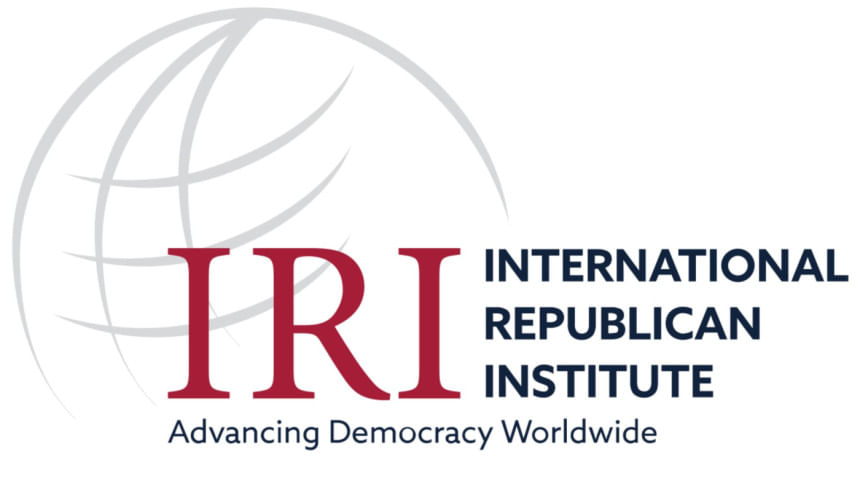Candidate selection for Bangladesh’s nat'l election lacks transparency, US-based IRI says

Nomination and candidate-selection processes for next year's national election in Bangladesh lack transparency, and are often shaped by personal networks or factional interests rather than merit-based procedures, says the International Republican Institute (IRI), a US-based non-profit."The inability of some parties to campaign freely in select localities due to security concerns and weak law enforcement has further limited open competition at the local level," it said in a statement published ye...
Nomination and candidate-selection processes for next year's national election in Bangladesh lack transparency, and are often shaped by personal networks or factional interests rather than merit-based procedures, says the International Republican Institute (IRI), a US-based non-profit.
"The inability of some parties to campaign freely in select localities due to security concerns and weak law enforcement has further limited open competition at the local level," it said in a statement published yesterday following an assessment mission between October 20 and 24.
The IRI pre-election assessment mission held 21 meetings with 59 stakeholders, including representatives from political parties, the interim government, the Election Commission, media, international organisations, and civil society to evaluate the electoral environment and prospects for democratic renewal.
The report comes as BNP has announced the nominations of 237 candidates, while other parties are in the process of announcing nominees, despite the fact that there are disagreements over the referendum date and its content and the July Charter Implementation Order.
BNP wants the referendum on the election day, while Jamaat-e-Islami wants it before national elections. On the other hand, National Citizen Party (NCP) wants the July Charter Implementation Order signed at the earliest.
The IRI assessment report said the established parties still continue to dominate the political field but face significant internal challenges.
It said the suspension of Awami League from participating in the election raises questions about representation in the process and whether it will contribute to increased violence on polling day.
"Confidence in traditional elites remains limited, and intra-party competition has at times led to localised violence," the report added.
The Election Commission's operational transparency represents notable progress compared with prior cycles, though implementation gaps remain.
"Despite steady operational progress, the legal and regulatory framework governing the elections remains incomplete," it added.
The Representation of the People Order (RPO) has been approved by the Council of Advisers but has not yet been formally enacted, leaving several key electoral provisions unresolved.
The Election Commission has updated its code of conduct, but enforcement mechanisms, particularly those related to campaign finance, expenditure reporting, and candidate eligibility, remain limited, the report said.
Stakeholders also expressed concern about the continued influence of unregulated financial resources, commonly referred to as "black money," and underscored the need for greater transparency in candidate finances and political party membership records.
To strengthen election security, the Election Commission plans to integrate the armed forces into its election security framework.
"Despite these efforts, the pre-election environment remains fragile, with isolated but politically significant episodes of political violence, questions about the neutrality of local officials, and lingering distrust of security forces," the report added.
The emergence of youth-led parties and the expected significant turnout of first-time voters, including diaspora members, signal a potential shift in political engagement and the continued influence of youth activism on Bangladesh's democratic renewal.
However, the IRI said, challenges persist as political parties' candidate selection processes lack transparency, women remain underrepresented, and concerns are mounting that the growing appeal of extremist movements and hardliner groups could embolden intolerant narratives and erode Bangladesh's secular political foundations.
"The trajectory of the July National Charter and the extent to which political parties institutionalise democratic norms, including those advanced by the student movement, will determine the direction of Bangladesh's transition," it said.
IRI said the interim government's success will depend on its ability to maintain neutrality, ensure security, and advance the National Consensus Commission's reform agenda toward tangible implementation.
"The July National Charter provides a blueprint for democratic renewal, but much of its realisation will rest on the next parliament's political will," it said.
"Sustained dialogue, transparent election administration, and credible participation by political parties will be essential to mitigate polarisation and reinforce confidence in the transition," it added.